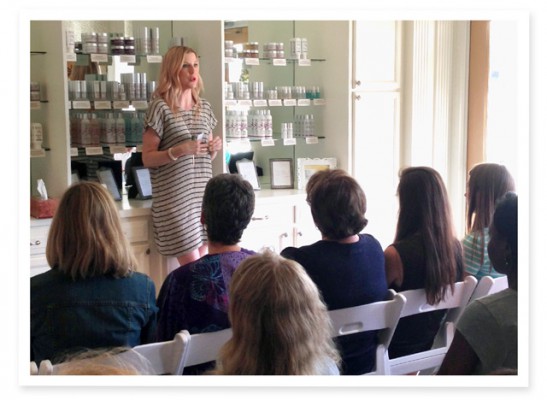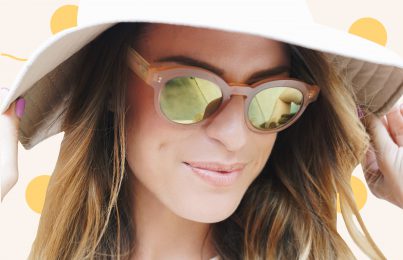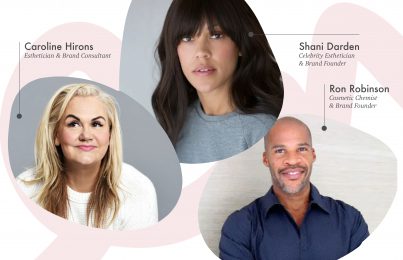It’s summer and that means extra attention needs to be paid to your skin to prevent damage, brown spots, redness and increased oil. I recently held two amazing master skin care classes in our Plano, Texas skin care spa and since we have so many fans across the globe who of course couldn’t attend, here’s a recap of what I shared plus some Q&A.
1. Wear sunscreen faithfully.
- SPF numbers—a higher number doesn’t necessarily mean it’s more effective. Did you know that an SPF 50 protects only 2% more than an SPF 30? Use a minimum of SPF 30 like found in Daily Protection SPF 30.
- Generous application is the key. Use a nickel size amount and treat neck as a separate area by doing a second application to this area.
- Consider the sunlight/UV rays that penetrate through clouds and windows (it causes premature aging), always use SPF no matter what. Even indoors, especially when daylight is coming through.
- Wear SPF year round. It doesn’t have to be hot to get damage, you can get just as much damage on cooler days.
- Powder sunscreen is an insurance policy and easy to reapply. I recommend ColoreScience Mineral Powder SPF 50.
2. Protect your neck and chest as this area is an extension of your face.
- The sides of the neck and the chest get incredible amounts of sun exposure and are often neglected. Use all of your skin care products on this area.
3. Be sure to give your skin extra water-based hydration since summer heat can evaporate water from the skin.
- Moisturizer keeps moisture and oil in the skin but consider using extra water-based products to give hydration to the skin.
- Bio Calm Repair Masque. Great for use in summer, store in fridge for a cooling effect.
- Skin Drink. Great for use in summer to use under nighttime lotion.
4. Topical antioxidants: Vitamin C Facial in spa, Vitamin C&E Treatment at home.
- Free radicals contribute to aging (from oxygen, daylight, etc.).
- Use antioxidants topically to act as a bodyguard for skin cells.
- Vitamin C has been a mainstay as a skin care ingredient over the years even though other fad ingredients have come and gone. This is because science confirms that it has an incredible effect on visible skin aging.
- Avoid vitamin C products that sting and oxidize. Must be stable or they lose their effectiveness.
- Vitamin C&E Treatment. Great for use in summer to use under daytime sunscreen.
5. Internal antioxidants: Ingesting vitamins helps protect the cells in your body.
- Eat lycopene which is found in the red pigment of pink grapefruit, papayas, goji berries and tomatoes.
- Anything with fruits and vegetables with color will provide antioxidants.
- Take a vitamin C supplement (1000mg) twice a day.
6. Limit your time spent out in the heat to prevent brown spots and capillary damage.
- Most people have brown spots that come out in the summer from not only the sun, but the heat, too. Studies confirm that heat will trigger melanin cells and create discoloration.
- I shared a story about how running in the summer wearing a visor created brown patches on my forehead. Read about this here.
- Stay out of the heat as much as possible. (If pigmentation is a big problem, avoid working out outside, hot yoga, sauna, anything that causes redness and heat).
- Do things to keep the skin cool when skin gets overheated. (Ice splash, Bio Calm Repair Masque, fan, facial mist, etc.)
- Capillaries get more fragile as we age. They are like rubber bands and when you do things that dilate them (sunburn, wine, hot shower, etc.) they stretch and will weaken over time and become visible on the skin.
- Vitamin C&E Treatment. Great for use in summer to help redness and prevent discoloration (brown spots) from heat and sun. Use under daytime sunscreen.
7. Reduce oil production to reduce breakouts.
- Breakouts stem from oily skin. Oil breeds bacteria which causes breakouts.
- The key to reducing oil is to keep the skin hydrated (with water-based hydration applied topically with products like Skin Drink and Skin Correcting Serum).
- I shared a story about how my own skin produces oil which you can read here.
- Drinking water is the least efficient way to hydrate the skin.
Q&A session:
I get breakouts on my back in the summer. What should I do? Read here.
I travel a lot in the summer. How should I care for my skin on an airplane? Read here.
Should I use retinol less in the summer? Read here.
Lessons learned:
Whenever I teach a class, I ask the attendees, “What have you learned that you didn’t know previously? What will you now do differently after this class?”
Cooling the face down with a gel mask after getting hot (esp. hot yoga).
Using sunscreen on the neck.
Sun damage can occur inside through windows.
Eat more fruits and vegetables.
Mineral powder is water-resistant.
Heat can cause hyperpigmentation.
An easy way to reapply sunscreen during the day is by dusting on an SPF mineral powder.
Use at least a nickel size of sunscreen on the face.
Apply TWO applications of SPF, on the face AND on the neck.
Need to use Skin Drink in the summer.
Commit to another dose of SPF on the neck and check.
Drinking water won’t hydrate my skin well. The best way is through topical hydration.
Need to be aware of heat in the shower. When washing the face, turn the temperature cooler.
Which skin care products are best for you? See our nine skin types or take our Skin Type Quiz and get products recommended.
Need expert advice from a licensed esthetician? Schedule a virtual consultation to get customized advice in person, over the phone or online via Skype or Facetime.
For more expert advice check out the blog. Also sign up for our skin tip e-newsletter, follow Renée Rouleau on Twitter and Instagram and join the discussion on our Facebook page. You’ll be your own skin care expert in no time. Get the #ReneeRouleauGlow!
Celebrity Esthetician & Skincare Expert
As an esthetician trained in cosmetic chemistry, Renée Rouleau has spent 30 years researching skin, educating her audience, and building an award-winning line of products. Her hands-on experience as an esthetician and trusted skin care expert has created a real-world solution — products that are formulated for nine different types of skin so your face will get exactly what it needs to look and feel its best. Trusted by celebrities, editors, bloggers, and skincare obsessives around the globe, her vast real-world knowledge and constant research are why Marie Claire calls her “the most passionate skin practitioner we know.”



